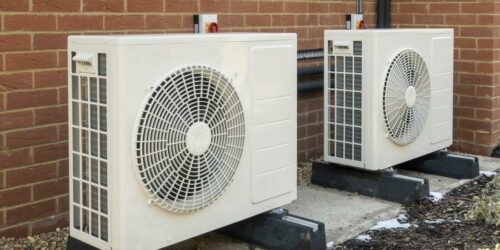Can You Run a Heat Pump With Solar Panels?
- How could a heat pump with solar panels work?
- Ground and air source heat pump options
- Average panel and heat pump cost
Using a heat pump with solar panels may sound like an absolute fantasy, but it’s more plausible than you might think. For a start, heat pumps use much less electricity to generate heat, being up to 400% more efficient at doing so. Linking renewable and low carbon systems could very well be the technology of the future, so there’s plenty of reasons to look into this.
This article will answer how a heat pump with solar panels could work, as well as what sort of costs you could face in getting to this stage. It will also look at whether solar batteries might be beneficial for a solar-powered heat pump system and what size solar panels would be needed. Using a heat pump in the UK can work for you.
Interested in buying a heat pump? Use our quote comparison tool to find out how much you’d pay. It only takes a minute.
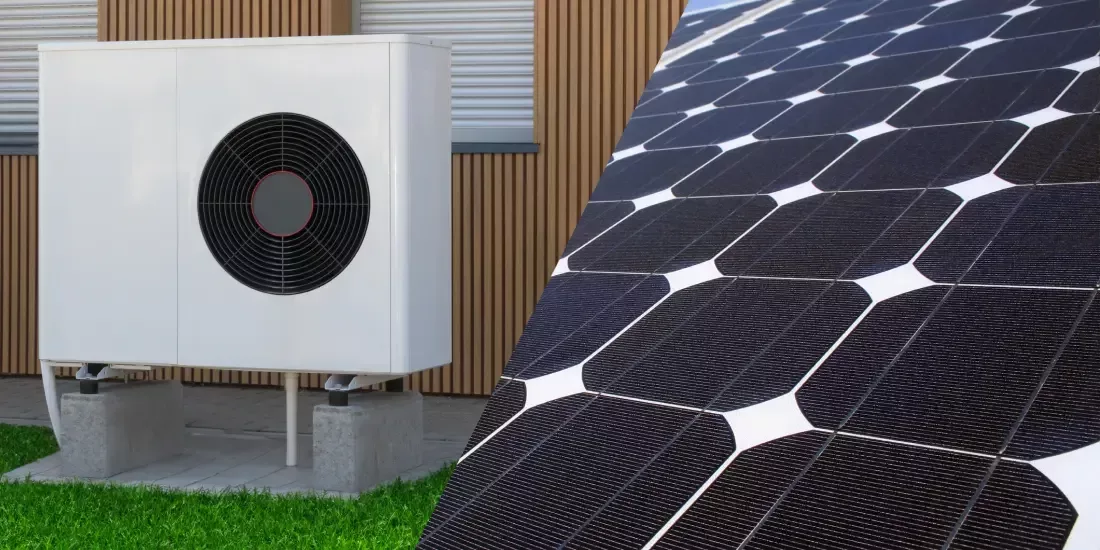
What's On This Page?
Click the links below and head straight to a specific section of the article.
Air Source or Ground Source?
While you can operate any heat pump with solar panels, it’s useful to know whether this works better for air source or ground source types. The size of your solar array will depend on how much electricity you can generate, but you can also make use of a heating system that allows the Sun to warm your hot water instead, cutting down on your electricity use for the heat pump.
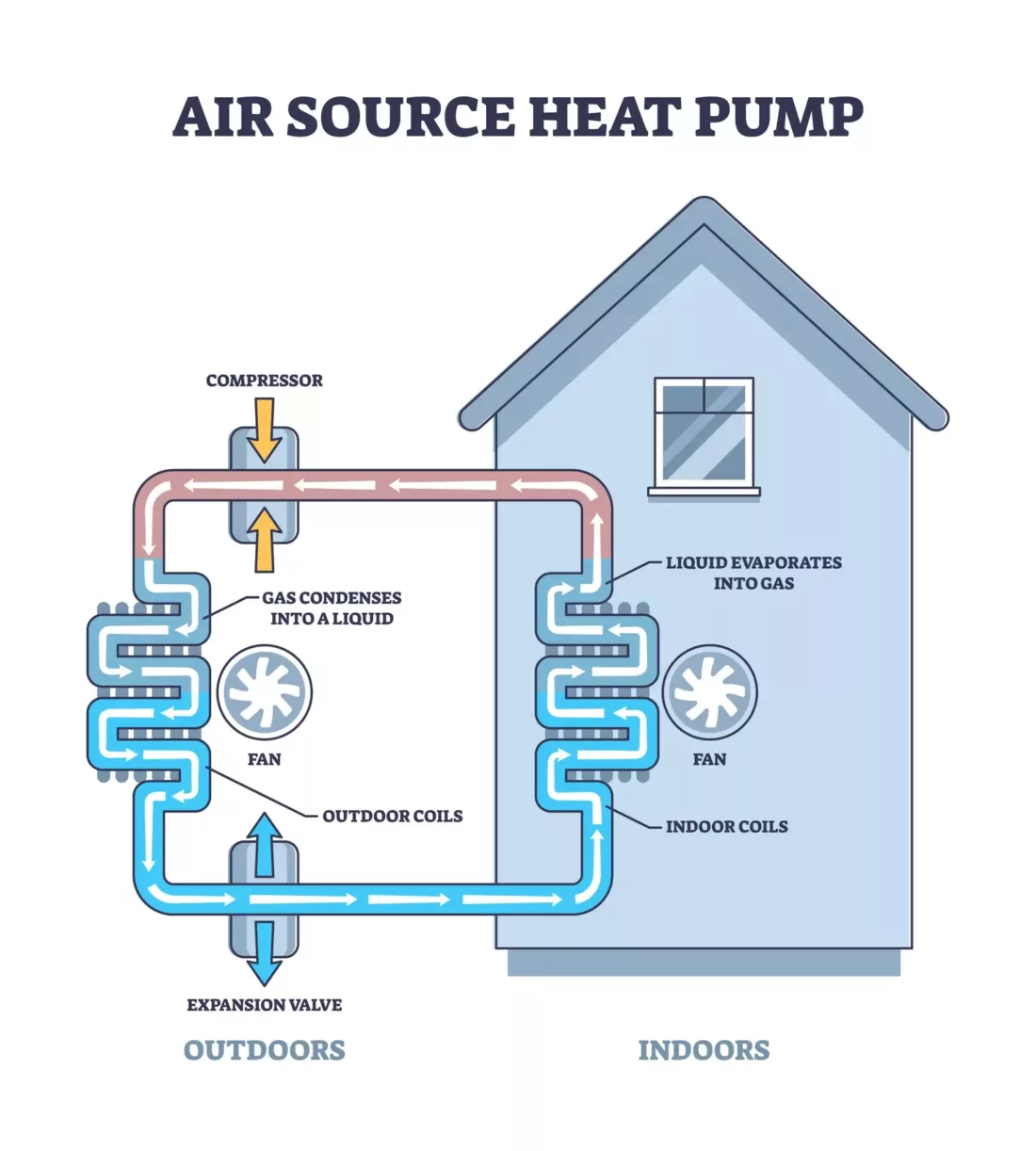
With heat pumps, the ambient temperature is used in the surrounding air or ground and works alongside a compressor to achieve desired warmth. The technology is purely electrical, so it requires electricity to run. Operating your heat pump with solar panels then seems like a logical move.
Of the two heat pumps available, air source is cheaper to install, but ground source is more efficient. As well as having these two choices, linked solar panel systems branch out into two more: whether to opt for solar thermal or photovoltaic.
Operating a Heat Pump With Solar Panels
Solar Thermal
This kind of system connects solar panels to the same circuit as the heating element of your heat pump. It captures the Sun’s heat and works in conjunction with the heat pump to reduce the amount of electricity that’s required. A heat pump with solar panels in this setup is like a helping hand, boosting how quickly it can warm up.
It goes a step further than simply using solar thermal technology on its own to warm your hot water. The only downside is that it requires a hot water cylinder as it can’t produce hot water on demand. Stored water can only be warmed slowly.
Despite the technology being more efficient than gas boilers and able to provide adequate hot water, pairing a heat pump with solar panels in this way will only provide enough heat for water and not for home heating as well. The only exception to this is thermally efficient homes, which have a much lower space heating demand.
If you need both heating and hot water, it’s better to go with a standard air-to-water source or ground source heat pump instead, or to look at using photovoltaics to reduce your electricity demand.
Photovoltaic (PV)
Pairing a heat pump with PV panels supplements the amount of electricity it uses. As this system is designed to replace gas, your electricity bill will go up to compensate. By running your heat pump with solar panels, you can cut down on the power it draws from the grid and reduce your energy bill as a result.
This is particularly useful in the winter months when heat pumps are slightly less efficient. As the temperature drops, more electricity is required to maintain set temperatures. By integrating a heat pump with solar panels, you can offset efficiency losses through renewable power.
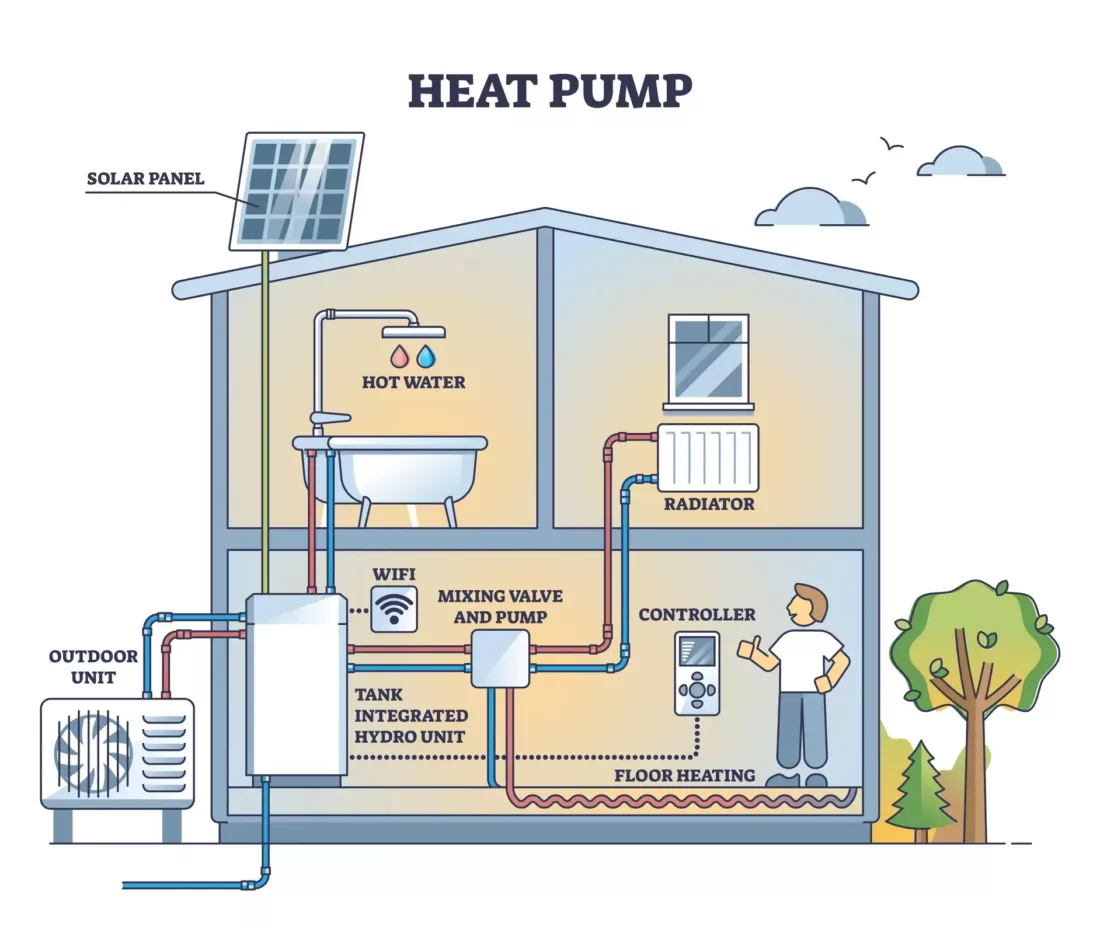
In terms of retrofitting, adding solar panels to your home or simply installing a heat pump will be more cost-effective than replacing the whole system with a solar thermal alternative. This is because PV panels can be added to a property and only electrical wires need to be integrated.
How Many Solar Panels Could Power a Heat Pump?
In order to work out how much power a heat pump with solar panels would require, we need to break down typical levels of energy use.
The average household will use about 3,700kWh of electricity a year, while a heat pump will add an additional 4,000kWh in the same time period. More efficient systems will only add 3,000kWh.
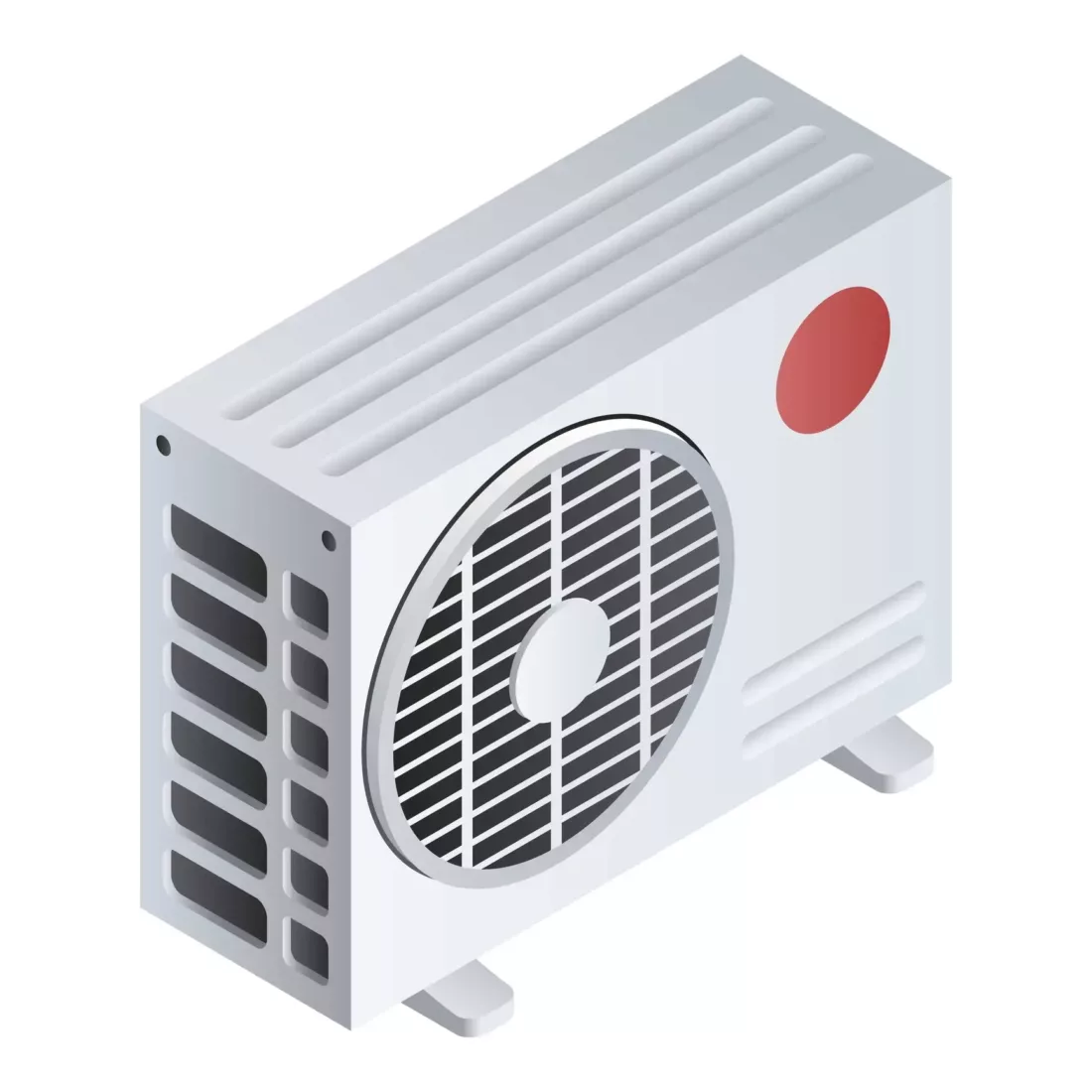
Using a gas boiler, on the other hand, annually consumes about 12,000kWh, so the efficiency of a heat pump already helps lower the demand it could otherwise be. Essentially, you need to produce around 7,700kWh of energy with your solar panels to cover all your needs for the year.
For the sake of comparison, on average, an EV will use around 4,300kWh a year. A heat pump with solar panels can cover the much lesser demand.
By linking your heat pump with solar panels, you will most likely only be able to power half of your home’s needs while making up for the rest through the national grid.
To be solely reliant on solar power, you’d need the right sized system. Heat pumps require around 25% of their heat output in electricity, so a 20kW system will run on 5kW. The less efficient the system, the more electricity required, and the colder the weather, the more electricity it will consume.
You can see the typical number of panels required for different powered systems in the graph below.
Despite being able to run a heat pump with solar panels, 20 panels are needed to power a 20kW system. This will produce around 5kW of power a day, which is enough to cover the operation of the heat pump, but nothing else.
The issue is the heat pump could only use this during the day, when the solar panels are capturing energy. Without a solar battery to make sure all electricity is used, selling any surplus back to the grid will only recoup some of the cost of running the heat pump.
Is Solar Storage Needed?
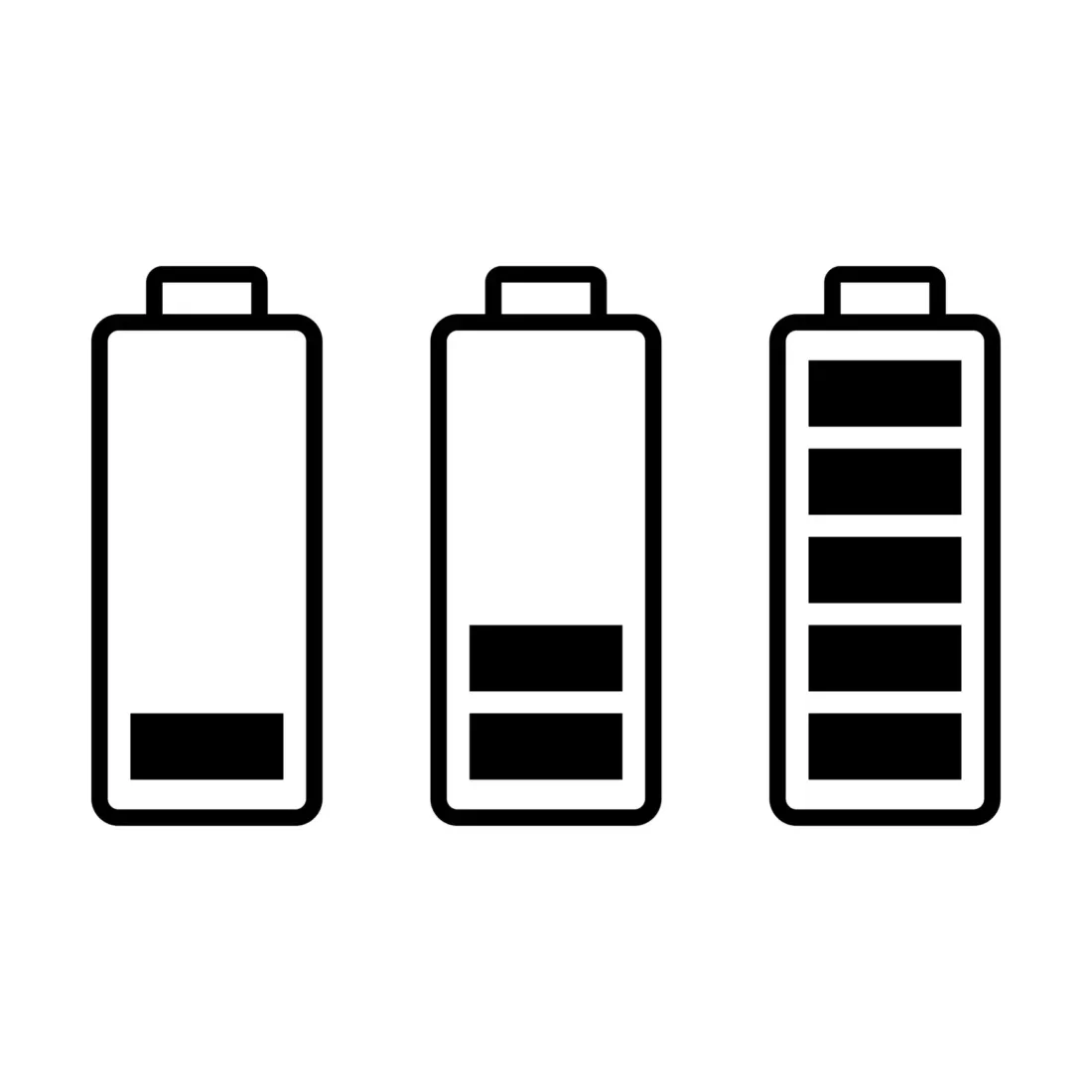
Instead of simply supplementing your heat pump with solar panels, it could be more beneficial to install a solar battery as well. This way, your heat pump will still use renewable energy at night when the demand for space heating is higher.
While it’s not required in order to pair a heat pump with your solar panels, a solar battery makes it much easier. The only downside to this is the additional cost.
To be clear, a solar thermal installation wouldn’t need a battery to operate. It’s only a heat pump with solar panels that would benefit from this stored electricity.
What Would a Heat Pump With Solar Panels Cost?
Air source heat pumps are the cheaper of the two options, averaging around £10,000. Ground source heat pumps, on the other hand, can easily be around the £30,000 mark.
The Boiler Upgrade Scheme (BUS) can reduce these amounts by £7,500, but with a solar array averaging £6,000 and a suitable battery system costing £4,000, this adds up. Even without a battery, you can still end up paying over £10,000 for a heat pump with solar panels.
On the cheaper end of the scale, you can pay £12,500 for a heat pump with solar panels and a battery, but that’s with the BUS discount applied. A ground source heat pump could stretch to £40,000 in total for an equivalent system.
All systems are different, so the cost of a heat pump with solar panels will be more or less depending on which manufacturer you go for, how many solar panels you need and which battery you buy. This only gives you a rough idea of what you could end up paying.
The Verdict
In an ideal world, where money is no object, it’s easy to integrate different low and no carbon systems. However, the reality is that powering a heat pump with solar panels might not be possible for all households. The biggest barrier to this could simply be a lack of roof space.
Whether you’re looking to reduce your energy bills or your carbon footprint, pairing a heat pump with solar panels will do both.
I Already Have a Heat Pump
If you already have a heat pump, there’s no reason why you shouldn’t consider upgrading your system to include solar panels as well. The main benefit here would be lower heating bills, but the drawback is an extra expense. After all, a heat pump with solar panels won’t come cheap.
I Already Have Solar Panels
Some households will already have solar panels and might be considering the switch to a heat pump. While your electricity use will increase by switching away from gas or another fuel source, you can limit this increase by making use of your current solar array.
Convinced about the benefits of running a heat pump with solar panels? Use the button below to be put in touch with local installers. They will give you competitive prices in your area.
Related articles
View all Heat Pump articles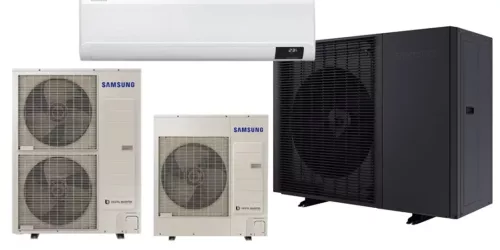
Samsung Air Source Heat Pumps: Overview and Costs
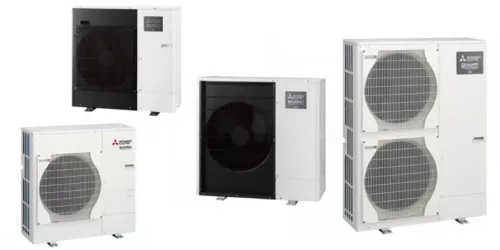
Mitsubishi Air Source Heat Pumps: Overview and Costs
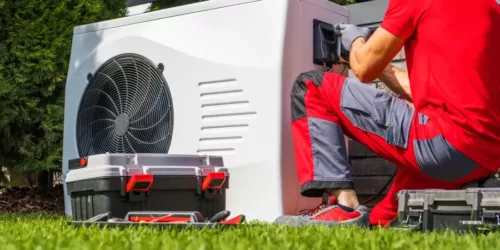
The Cost of an Air Source Heat Pump Service
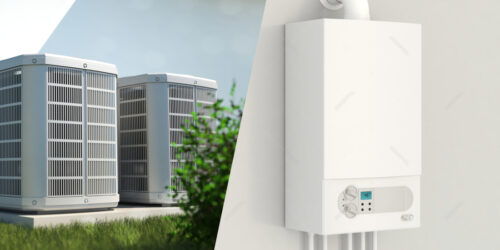
Heat Pump vs Gas Boiler - What's Better?
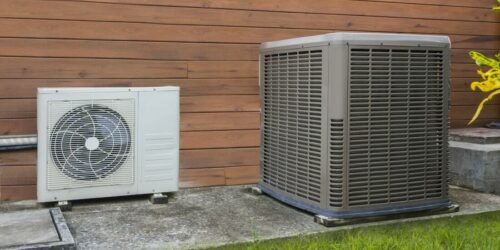
Different types of heat pumps: what’s available?
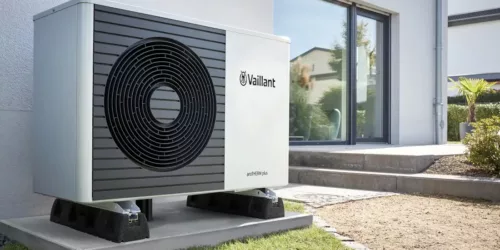
The Ultimate Guide to Vaillant Heat Pumps
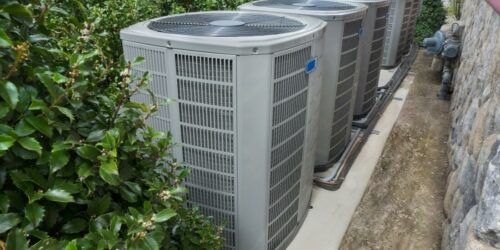
How Do Air Source Heat Pumps Work?
